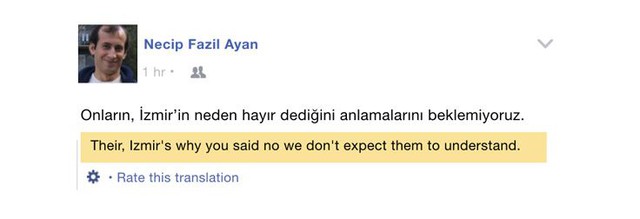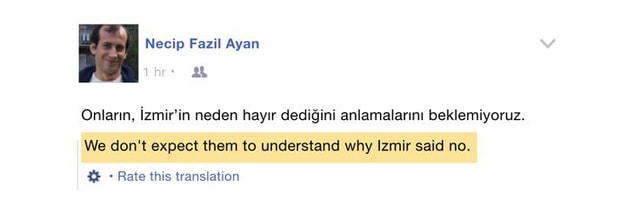Facebook translates automatically using artificial intelligence
The world's largest social network announced that from now on, about 4.5 billion automatically translated content per day on this platform will be processed by artificial intelligence (AI).
 |
| Photo: The Verge |
According to The Verge news site, from August 4, about 4.5 billion automatically translated content on Facebook social network will be completely processed by artificial neural networks.
Facebook previously used simpler phrase-based machine translation models, but now they're switching to full AI translation technology.
In a statement posted on the company blog, Facebook explained: "Creating highly accurate, seamless translation experiences for Facebook's 2 billion users is difficult. We need to take into account context, slang, typos, abbreviations, and intent."
The biggest difference between the old machine translation technology and the new technology is the overall coverage of the content to be translated.
While the old phrase-based translation was word-by-word or focused on short phrases, AI neural network translation considers the semantics of the entire sentence.
The practical effect can be felt quite clearly. You can compare two examples of automatic translation of a sentence from Turkish to English in the image below.


Photo: The Verge
The above sentence is using the old translation method and the below sentence is the result of the new machine translation technology. From this you can see that the AI technology has taken into account the overall context of the sentence to be translated, thus giving a more accurate translation result.
When it encounters a word in a sentence for which the system cannot find a corresponding transliteration in the target language, the AI neural network will generate an alternative symbol for this unknown word.
Additionally, the automatic translation will also look up the word in an internal dictionary built into the training data for Facebook's automatic translation technology, and the unknown word will be replaced.
For example, Facebook's automatic translation dictionary can replace abbreviations like "tmrw" with "tomorrow."
According to Tuoitre
| RELATED NEWS |
|---|


